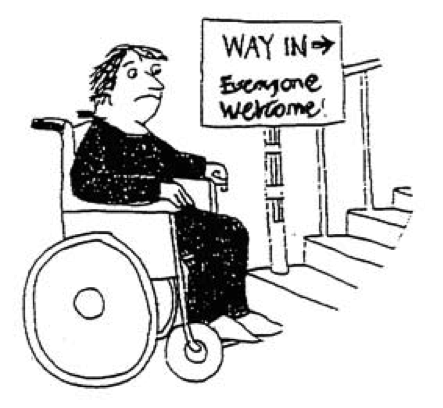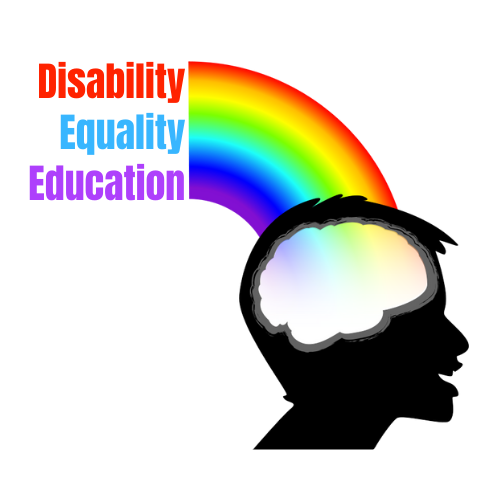
Posters with Disability Inclusive Content
Posters with disability representation. Most are free to download, though some can be purchased as well.
Image description: Corkboard wall with many signs of assorted size and colors.

Racialization of Disability Lesson
In this lesson, students will read and discuss Douglas Baynton’s Disability and the Justification of Inequality in American History. Students will participate in a discussion about the racialization of disability and the intersections of ableism and racism.
Image description: Photograph of James Baldwin and the quote “We can disagree & still love each other unless your disagreement is rooted in my oppression & denail of my humanity & right to exist” - James Baldwin

The Right to be Disabled: Video Discussion Guide
For this lesson, students will watch a video titled “The Right to be Disabled” from the Broadreach Training and Resources webpage. This video details Norman Kunc’s journey from being somebody who wanted to hide his disability, to somebody who realized that he has the right to be disabled and that the world around makes him feel like he was not the way he should have been. This video explores important questions about disability, and civil rights movements in general. Students will watch the video and discuss these topics in think, pair, share series of activities.
Image description: Screenshot of the video “Conversations that Matter: The Right to be Disabled”

Scientific Racism and Scientific Bias Lesson
Students will learn about the history of how science has been used to enforce racism. Students will think critically about scientific bias.
Image Description: Sepia tone background. “Scientifc Racism and Scientific Bias” in white letters

The Social Model of Disability
This links to our Social Model of Disability resources page which contains videos and examples of how to introduce and teach the Social Model of Disability.

Statistics and Disability Representation
This lesson integrates statistics with disability acceptance to enhance both mathematical understanding and social awareness. Over the course of three class periods, students analyze statistical data related to disabilities such as employment rates, educational attainment, and media representation. Students will then create various types of graphs, and discuss the representation and treatment of people with disabilities in society.
The lesson includes a mix of video content, group discussions, data analysis, and presentations, culminating in a reflection activity to deepen students' empathy and awareness. By engaging with real-world data, students develop their skills in calculating mean, median, mode, and range, while also promoting inclusivity and acceptance.
Image Description: Person in wheelchair pointing to a stylized web browser with various graphs and charts on it. The accessibility icon is in the bottom left-hand corner.

Thinking Critically about Disability - Social Media Lesson
When Stephen Hawking passed away, many artists processed the loss through art. Their art depicts disability from multiple perspectives. In this activity students will explore 2 contrasting images. Take note of the details and how the images depict Stephen Hawking and his physical disability. Both of the images are from Twitter and students may have already seen both of the images just scrolling through their phones. Students will explore elements of art, social studies and psychology in this lesson. The focus of the discussion is up to individual educators.
Image description: illustration of Stephen Hawking, seated in his motorized wheelchair, floating above the earth with other planets in the background

We Will Ride Lesson by Pop Culture Classroom
In this lesson students will read a 2-page graphic novel format story about the Gang of 19 and “We Will Ride” action, and how they fought for equal rights for the disabled.
Image Description: Graphic Novel cover showing protesters in purple black and off white on a green background with the title “Colorful History Comics #31 We Will Ride” underneath the comic.
